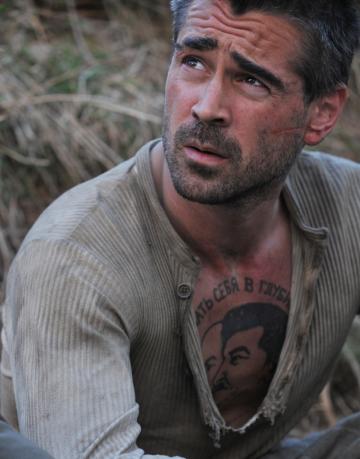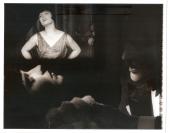'The Way Back' dramatizes escape from Siberia
"It is not our guns, our dogs or our wire that form your prison," the commandant informs his new arrivals, "it is Siberia" -- all 5 million ferocious square miles of it.
Escape? Total fantasy. If nature and minus-70-degree temperatures don't get you, the natives will. The bounty on their heads is a year's income for Siberian villagers or nomads, and the only "proof" needed to claim the reward is one hand or foot.
Of recent daunting survival tales on film, "127 Hours" is a solo walk in the national park compared with the 127-or-so weeks it takes to find "The Way Back," Peter Weir's epic saga of seven escapees' 4,000-mile flight from the Soviet Gulag in 1940. It was inspired by more than one true story after the sickening Hitler-Stalin invasion and division of Poland.
The breakout itself is the (relatively) easy part. Once escaped, the free men are virtually guaranteed dead men. Lacking food and correct directions, their freedom trek presents unimaginable hardships and defies all odds of success. Inside the camps, they'd kill each other for a sweater or piece of bread. Outside, animal instincts must combine with human ones involving trust and a single rule: Keep moving, keep moving ...
Our hero is young cavalry officer Janusz (Jim Sturgess), one of thousands of Polish soldiers arrested by the Red Army as "spies." He's well-educated, speaks excellent English. He's also an experienced woodsman whose survival skills make him the group's leader, to the chagrin of Valka (Colin Farrell), a vicious Russian street criminal.
Among the other escapees is a quiet, enigmatic American engineer, "Mr. Smith" (Ed Harris), who went with his son to work on Moscow's metro system in the Depression, when jobs in Russia were advertised in U.S. newspapers. Upon arrival, their passports were taken and they had to become Soviet citizens. When the purges began, they sought help from the U.S. Embassy but were told, "You gave up your citizenship, there's nothing we can do for you." (Seven thousand such Americans disappeared in the Gulags.)
First goal: 400-mile-long Lake Baikal. Follow it south to Mongolia, thence through the scorching Gobi Desert and over the Himalayas to the sanctuary of British-run India. Janusz's leadership struggle with Valka is a kind of "Lord of the Frozen Flies." Tensions further mount when a young female refugee (beautifully played by Saoirse Ronan of "Atonement") shows up and they argue over whether to let her join them. How much decency do they have left? What impact might she have on them?
The film's production trek was as long and hard as the escapees' journey. Based on Slavomir Rawicz's "The Long Walk," published in 1956, it was originally optioned by actor Laurence Harvey and later by Warner Bros. as a vehicle for Burt Lancaster. But worth the wait, for the great cast at hand:
Mr. Sturgess as Janusz is nothing less than perfect, from start to finish. He was excellent in Robert Luketic's underrated "21" and in "Across the Universe," but even better here as the ultimate steadfast vs. faithless human soul.
The gravitas of Mr. Harris ("Appaloosa," "History of Violence," "The Right Stuff," "A Beautiful Mind," on and on!) anchors everything, while Mr. Farrell matches his brilliant performances in "In Bruges" and "Cassandra's Dream."
As part of his intense cast preparation for the Gulag's physical and emotional torments, Mr. Weir "workshopped" an unscripted interrogation scene, in which a Soviet accuser demands that the beaten-up Janusz sign a confession. His wife is brought in and tearfully testifies against him. Heart-breaking in intensity and power, Mr. Weir not only kept it but used it to open the film. We never see or need to see the actual beating to "get" it.
That is consistent with the six-time Oscar-nominated director's previous work -- all compelling narratives examining human behavior under stress and duress -- from "Gallipoli" (World War I) and "The Year of Living Dangerously" (toppling Indonesia's dictatorship), "Witness" (Harrison Ford's culture clash with the Amish), "The Truman Show" (Jim Carrey trapped in a TV show about his own life), to the Napoleonic naval epic "Master and Commander."
Shot masterfully in Bulgaria by Oscar-winning cinematographer Russell Boyd, it is gorgeously scored by Burkhard Dallwitz in classic fashion -- sans final "song" insult during the credits!
"The Way Back" is a profound tribute to all 18 million who passed through the Gulags -- 5 million of whom died there. Viewers might prepare emotionally for this arduous film journey as if preparing for the real one, but also prepare to be rewarded for it with one of the most uplifting films of the year.






